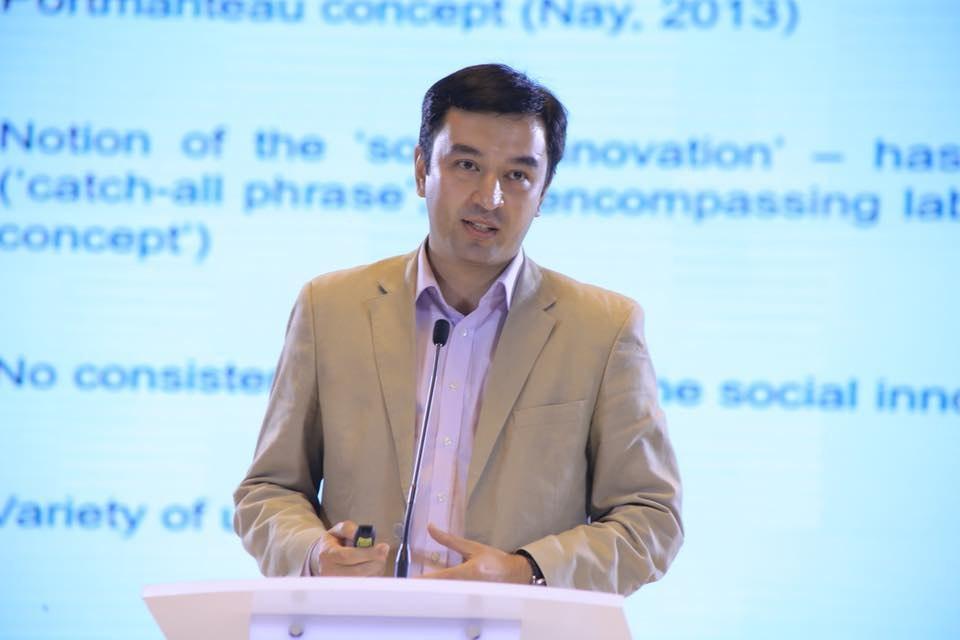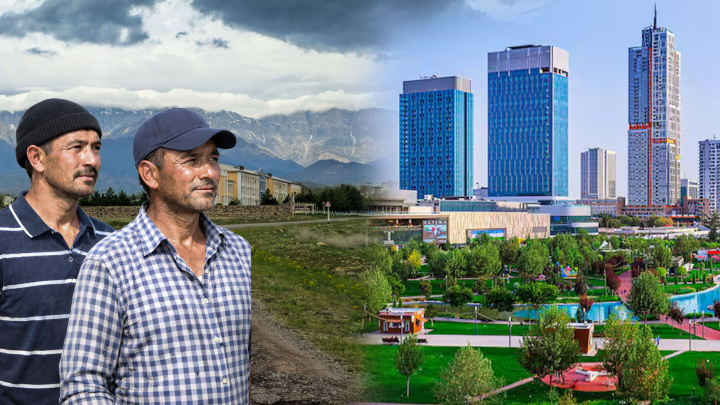Expert Bakhrom Rajabov explains what slows down economic reforms in Uzbekistan
A political economist, PhD, a specialist in the field of social and public sector innovation, shared his thoughts with the Uzbek Review on what slows down economic reforms and how to improve the investment climate in Uzbekistan.

Photo: facebook.com/bakhrom.bahodirovich
According to expert Bakhrom Rajabov, positive changes in the economy of Uzbekistan began with the introduction of free currency conversion.
The specialist also expressed his opinions on what hinders economic reforms in Uzbekistan.
Lack of predictability
When the new government had just begun to carry out reforms, the business froze in anticipation. Everyone was interested in how the new government would manage, what the new “rules of the game” would be. One problem that is difficult to solve quickly is the reduction of the shadow economy. The state knows that most of the business is “in the shadows”.
Business knows that the state knows this. The announced tax reform, in particular, was aimed at stimulating the business to get out of the shadow. So far this has not been completely successful: there is not enough predictability for business, there are not enough jobs with decent salaries in the non-shadow sector.
High state share in the economy and ill-conceived social lending
There are many problems with the reduction of the state’s share in the economy, the so-called natural monopolies and much more. The programs aimed at supporting a family business and lending to a number of infrastructure projects raise questions.
It is not necessary to make everyone an entrepreneur. Part of the money allocated for such programs is better to lend to business, possibly at higher interest rates, so that it creates jobs. I agree that loans should be available, but entrepreneurship can be stimulated in a different way. The state spends large funds on infrastructure projects and programs and issues soft loans. This policy is carried out after crises, wars, famines, in order to support demand or provide people with work when there is no work.
Lack of reformers
Where does the new generation of competent technocrats come from? A small part of those who returned from abroad (for example, director of the Capital Market Development Agency Atabek Nazirov, Deputy Minister of Finance Odilbek Isakov and others), despite holding positions of responsibility, have not yet made up a critical mass capable of making changes. The process is ongoing, but at the moment such people, in my opinion, are not enough. I think it is necessary to direct a group from technocrats into a certain sphere, with their appointment to leading posts with appropriate powers. Then there may be an effect.
Nepotism
Much in the local market so far depends on “connections” and “acquaintances”, and not on competencies and victories as a result of free competition. This is not excluded in developed economies. But the truth is that in developed countries competence is more important in order to win a competition.
What is needed to improve the investment climate?
Strong institutional reforms
It is necessary to strengthen the institutions without which a market economy cannot function normally: independent and professional courts, parliament, the media, and so on. It is necessary to create mechanisms that will help improve the business climate in the country. One of the main conditions for ensuring sustainable economic growth is elections and transparency. The election institution needs to be improved and strengthened. It is also necessary to reduce the role of the state and eliminate a number of committees and departments.
Judicial reform
Now in Uzbekistan, processes are underway to strengthen the role of judges: additional powers are transferred from the prosecutor’s office to the courts, the work of the panel of judges is improved. Practical support of the right to private property should be at the forefront.
For the independence of the courts, it must be guaranteed that the executive branch cannot interfere in the judiciary. It is necessary to increase the professionalism of judges, to ensure their financial independence, and so on.
Fiscal discipline
The law “On the state budget of the Republic of Uzbekistan for 2020” should become an effective tool in this. It establishes restrictions on the use of the state budget, the Fund for Reconstruction and Development of Uzbekistan, by increasing the public debt for large investments to ensure macroeconomic stability.
Expert’s expectations
Much is changing for the better in economic matters and in areas that somehow affect it. I expect changes in the following areas:
1. Public administration. I expect that the administrative reform will work, they will begin to select for the civil service according to the principle of meritocracy (based on competencies). Public services will become even more accessible and innovative. They will adopt laws on public service, on open data. The state will follow the path of efficiency, leaving those areas where businesses can cope more efficiently.
2. Capital market development. It is only in its early years. For its development, investing should be profitable. It is necessary to create various instruments in the financial market that would bring income and profit. Reforms should take place in the banking sector, and the “savings – investment” mechanism must be in place. Then the population will begin to invest their savings, and not to keep them “under their pillow”.
3. Antimonopoly sphere. I note great progress in this area.
We should not forget about social guarantees. The free market to which Uzbekistan is heading by itself will not ensure the welfare of citizens. Here we need a verified state policy. The function of the state, in this case, is a fair redistribution. The market is rarely bothered by social issues. Therefore, the state should take care of the “rules of the game” in the market, about the minimum social guarantees for people.
It is known that GDP growth may well not transform into an increase in people’s well-being. There is an opinion that GDP does not fully reflect real development. It is good if the state plays its role in terms of social policy and does not interfere with the market.
Related News

17:38 / 02.02.2026
Migration and uneven development widen regional income divide in Uzbekistan

12:41 / 02.02.2026
Uzbekistan plans expanded digital oversight to reduce informal economic activity

16:24 / 29.01.2026
Per capita incomes rise sharply across Uzbekistan, with notable regional disparities

13:04 / 29.01.2026




